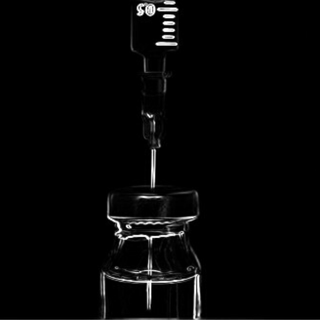
Untrending: Activated Charcoal Can Be Good for You — But Only in Emergencies
Activated charcoal can be helpful when ingested in the event of poisoning or overdose, but regular consumption does not carry the same benefits.

It’s everywhere, turning your toothpaste, shampoo, face masks, coffee, cocktails, and desserts as dark as your soul: activated charcoal is still a trend online and IRL, seeming to walk the line between gimmick and beneficial supplement more easily than other substances. With actual medical application, activated charcoal comes with more legitimacy than some of its other co-trenders. But what are the health effects of activated charcoal, really, that make it so versatile it’s included in both ingested and topical products?
What is activated charcoal?
Activated charcoal is an ultra-refined version of charcoal powder, created by burning carbon-rich substances at a very high temperature. It’s typically treated with various additional substances, solutions, and gases that remove all residue and increase the porousness of the pure carbon that remains.
This porousness increases its surface area — to such an extent that 50 grams of activated charcoal has a collective surface area 17.5 times larger than that of a standard football pitch; 1 gram, which is closer to what your average jet-black latte would contain, has a surface area of roughly three to four tennis courts.
Does activated charcoal have any health benefits?
This porous, expanded surface area is activated charcoal’s primary benefit, allowing the substance to act as a sponge and lend itself to emergency medical treatment for poisoning or overdoses: ingesting activated charcoal in these circumstances and under the care of a physician, can prevent or minimize toxins from being absorbed into the body — because it absorbs the toxins first. Because of its massive surface area, activated charcoal has lots of space to bind to the molecules of poisons and drugs, carrying them safely through the digestive tract until they are excreted. Activated charcoal is therefore used in some ER situations as an alternative to stomach pumping.
Important note: Activated charcoal does not bond with alcohol, so you’re out of luck if you think you’ve stumbled onto a hangover cure.
So, is activated charcoal safe to eat and ingest?
Because of its legitimate, if rare, medical application, activated charcoal has found its way into all sorts of edible and ingestible products, from cocktails to coffee, as a sort of ‘detox’ ingredient. Let’s ignore, for the moment, the persistent and associated myth that ‘detoxing’ of any kind is necessary for the body (which has natural, biological processes in place to detox itself). The question becomes: Is activated charcoal safe to eat and ingest regularly?
Activated charcoal doesn’t cause outright damage to health with regular use. But the thing that makes activated charcoal so effective as an emergency treatment — its disproportionate capacity for sponge-like absorption — is the thing that makes it not a good idea to consume regularly. Activated charcoal can bind with, say, the healthy vitamins of apple juice as easily as it binds with poison — and can carry the vitamins out of your system just as easily, too. In other words, activated charcoal effectively prevents the absorption of good substances as well as bad.
This has implications beyond the possibility of malnutrition. For anyone who takes regular medication of any kind — including birth control — ingesting activated charcoal regularly, even in a tiny amount, is a bad idea.
Related on The Swaddle:
Untrending: What Are he Health Benefits of Matcha, Really?
“Many studies have looked at the reduction in medication effectiveness, and this effect is far from theoretical. For example, 1g of AC [activated charcoal] taken within five minutes of 500mg of Ciprofloxacin reduces that antibiotic’s effectiveness by about 10%. However, a different antibiotic that was only a 100mg dose was reduced by about 90%. Imagine the effect on birth control pills that are 1/1000th that dose!” Dr. Matthew Powell, a hospitalist in Seattle in the U.S., told the niche coffee-journalism magazine Sprudge.
The variation depends on the weight of the molecules that make up a given medication; birth control, as well as thyroid medication, some antidepressants, and other drugs comprise small, lightweight molecules — allowing the huge, porous surface area of activated charcoal to absorb more of them than other medications that consist of larger molecules.
So, between activated charcoal’s potential effects on nutrient and medication absorption, it’s really best not to ingest it. (Not even in the case of a poisoning or overdose — most activated charcoal available over the counter is not as pure as the medical-grade activated charcoal hospitals have on hand, and thus won’t be super helpful in the event of an emergency.)
That said, if you really can’t get enough of goth in your life, just make sure you consider timing: “Medication taken four hours before or after AC wouldn’t be likely to come in contact with it,” Dr. Powell told Sprudge, “but the closer they are taken together, the stronger the interaction.” Taking your medicine in the morning and following it up with an activated charcoal latte isn’t doing you any favors — and neither is consuming an activated charcoal dessert or cocktail right before or after dinner.
Is activated charcoal good for skin and hair?
But activated charcoal is safe for more cosmetic use? Again, in general, it’s not outright bad. The one exception is using activated charcoal toothpaste, which promises to make your teeth whiter. Not only is there no evidence it does so, it’s actually more likely to make your teeth yellower and more prone to decay; the harsh particles of the activated charcoal abrade and strip away protective tooth enamel, leaving teeth more vulnerable.
Beyond this, the cosmetic benefits of activated charcoal are really a matter of personal opinion and maybe even the placebo effect. Studies have found no evidence that activated charcoal is good for skin and hair. And while it’s certainly possible, in theory, for activated charcoal to bond with oils and inactive bacterial or viral cells, there’s virtually no proof it actually does, leaving any products that promise this benefit ethically and effectively dubious. Plus, it’s equally possible that the activated charcoal in cosmetic products bonds with and carries away the good, protective bacteria present in our mouths and on our skin — perhaps leaving us more exposed to infection and inflammation.
Bottom line on activated charcoal
Better out than in. Better safe than sorry.
Liesl Goecker is The Swaddle's managing editor.
Related


Why Some People Shy Away From Confrontation
